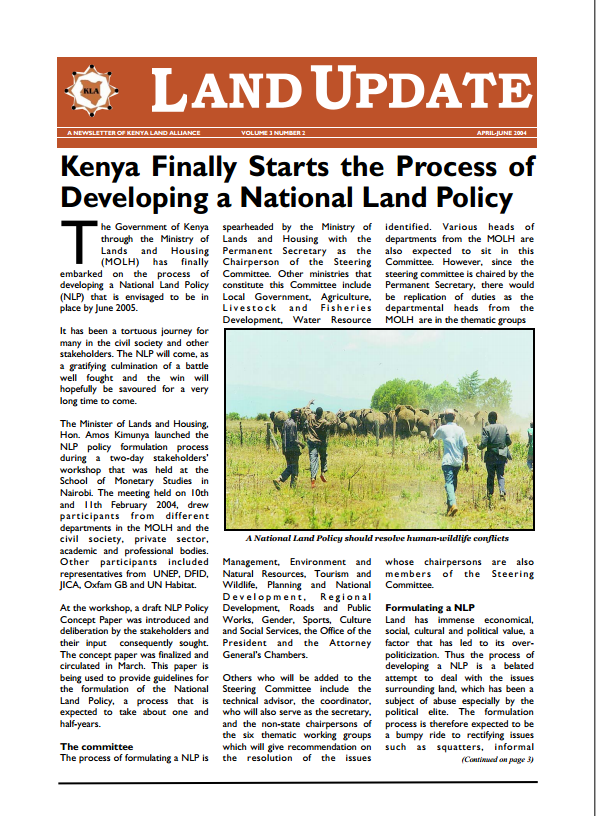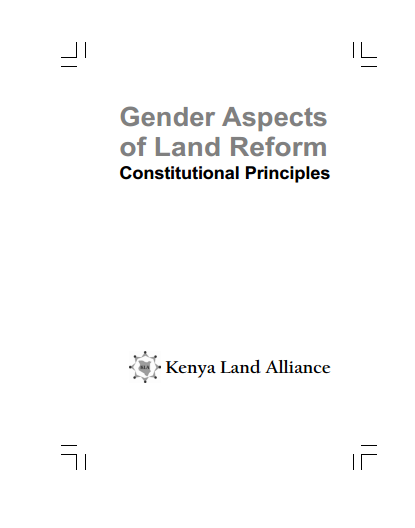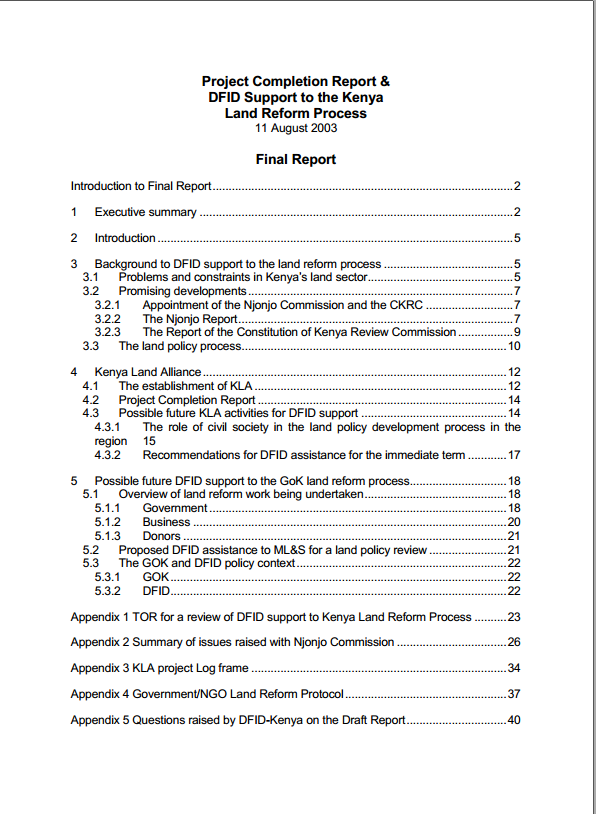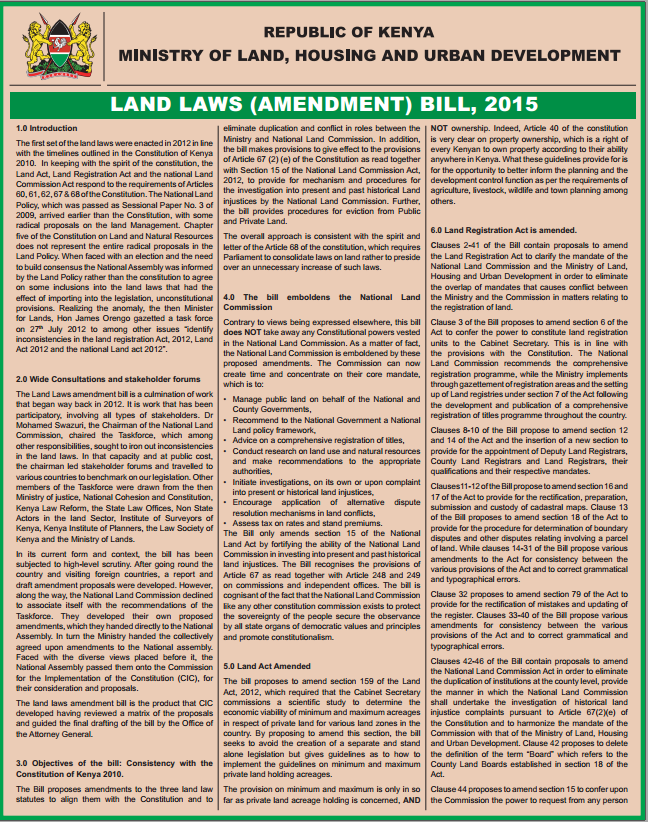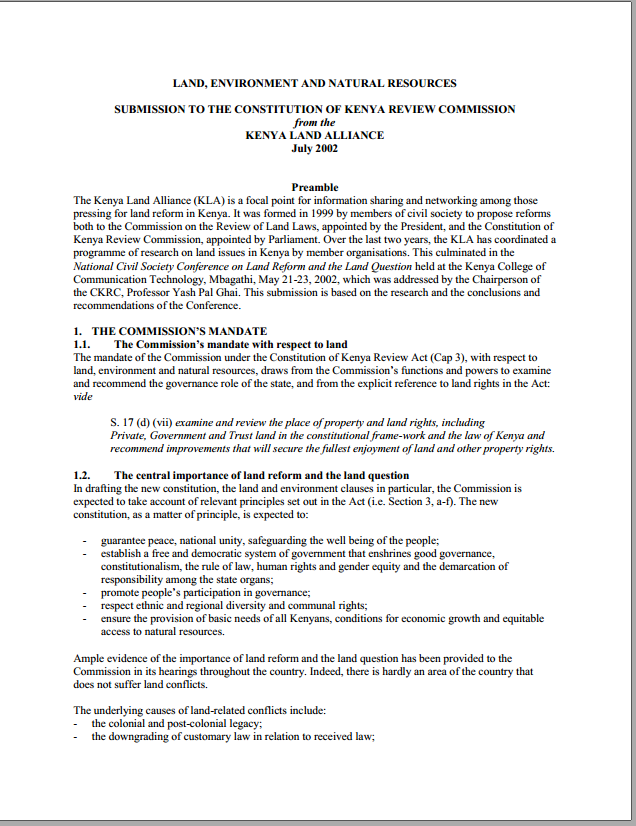Kenya Finally Starts the Process of Developing a National Land Policy
The Government of Kenya through the Ministry of Lands and Housing (MOLH) has finally embarked on the process of developing a National Land Policy (NLP) that is envisaged to be in place by June 2005. It has been a tortuous journey for many in the civil society and other stakeholders. The NLP will come, as a gratifying culmination of a battle well fought and the win will hopefully be savoured for a very long time to come. The Minister of Lands and Housing, Hon.

